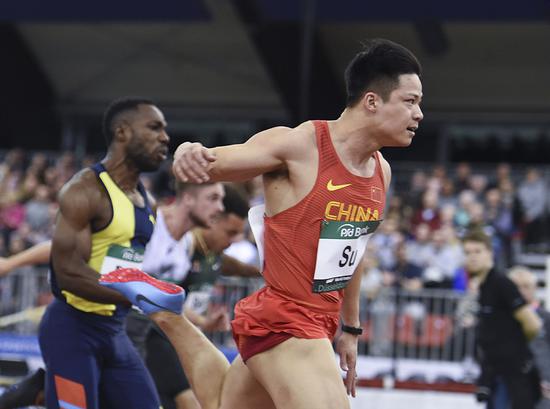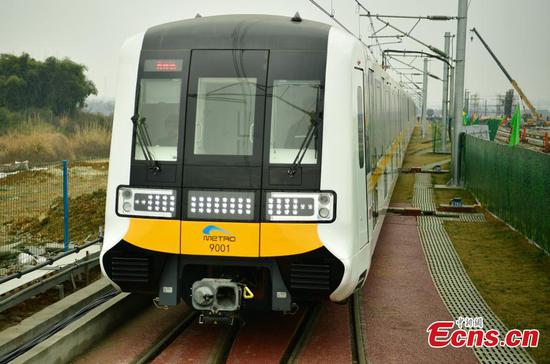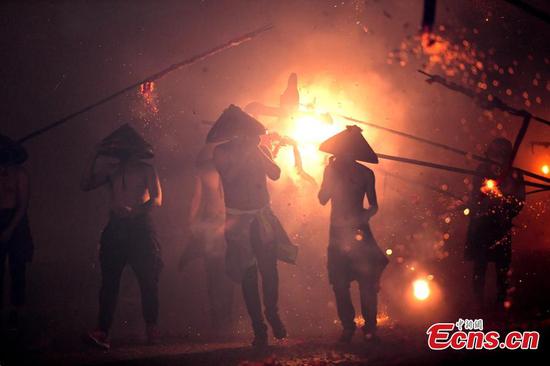Opposing statements on Huawei have split Europe and the US, with the US-led crackdown on China's 5G rise leaving major Washington allies undecided on restricting access to Huawei equipment, and some European countries will likely ignore US rhetoric on the issue.
The US government has been trying to pressure Europe to discard the Chinese company, warning that its products pose a security threat to European countries, without providing any concrete evidence. While some suggest that this alarm might not be accurate, countries like Germany and the UK lean toward Huawei.
This shows the US campaign may not be working, industry representatives said.
A spokesperson for Germany's interior ministry told CNBC on Tuesday that Germany was not planning to shut any firm out of its 5G network. The move follows the UK and New Zealand governments rejecting the ban on Huawei and going in the opposite direction of the Five Eyes alliance in containing the global outreach of Huawei.
British network security adviser the National Cyber Security Centre said any risks from the use of Huawei equipment in its 5G networks can be managed, media reported on Sunday. The latest statement of the UK was a blow to the Trump administration's efforts to accuse the Shenzhen-based company of jeopardizing national security.
The Chinese Foreign Ministry on Thursday called for global collaboration on 5G. Geng Shuang, spokesperson of the ministry, told a routine press conference on Thursday that "5G technology does not exclusively belong to one or some countries."
"5G is a product of global collaboration which reflects a highly integrated global supply chain," he said, noting that the development of 5G cannot be stripped or fragmented.
US Secretary of State Mike Pompeo voiced concerns over Huawei during his recent five-nation European tour, claiming that the US may scale down its partnership with European countries that collaborate with Huawei, according to media reports. The US has repeatedly declared that Huawei equipment could contain back doors used for spying for the Chinese government, and the company, which is also a privately owned firm, repeatedly denied this.
"There's no way the US can crush us. The world needs Huawei because we are more advanced," Huawei founder Ren Zhengfei told BBC in an interview published on Monday.
If the US persuades more countries not to use Huawei products temporarily, the company could scale things down and continue improving its products and services, Ren noted. When asked about the impact to Huawei if the US successfully convinces many of its partners to shun Huawei products, he said, "If the lights go out in the West, the East will still shine."
While the company, which is also the largest global telecoms equipment provider, shifts its communications strategy amid a global backlash and becomes more open to the public, Western countries are increasingly divided on the so-called security threat issue.
Divided alliance
As MWC19, the most influential telecoms industry event, looms industry representatives called for a network-testing mechanism rather than an outright ban on the Chinese firm for political reasons, which will hurt the growth of the industry.
GSMA, which represents about 800 mobile operators globally, urged European policymakers for a fact- and risk-based approach to evaluating 5G network security, according to an open letter the organization issued on February 14.
Security concerns risk further hampering Europe's lagging efforts to build 5G networks, B?rje Ekholm, CEO of Ericsson, a major rival of Huawei, was quoted as saying in a Financial Times report on Monday. And he warned that Huawei tensions have paralyzed European operators.
"Politicians want to take sides, but it will eventually be the operators who will pay the extra costs," Xiang Ligang, chief executive of telecoms industry news site cctime.com, told the Global Times on Thursday. Since 5G equipment and products provided by the Chinese company are widely known to be more affordable and of better quality, a lockout of Huawei will add costs by an average of 30 percent to network construction, the analyst said.
Vodafone CEO Nick Read also urged that international telecoms community to engage in a more "fact-based conversation" on Huawei, according to an email the major European carrier sent to the Global Times earlier.
In addition to carriers, some Western policymakers have already defied the US stance. Italy's industry ministry said there was no evidence to prove that Huawei poses a threat and denied it will ban the company in 5G plans.
Contrasting views have also emerged within the Five Eyes alliance of Australia, Britain, Canada, New Zealand and the US.
Prime Minister Jacinda Ardern says New Zealand has to make its own decisions about Huawei regardless of its intelligence relationships with other Five Eyes members, and the decision should not be politicized, local news site radionz.co.nz reported on Tuesday. She also said that they never ruled out the company in building parts of New Zealand's 5G networks.
Technical issue
Senior Huawei executives said opposition to the company should not be further politicized, and network security concerns should be dealt with technically.
"Unlike the US, European countries are more pragmatic, and some will not sacrifice their own interests just to please Washington," Li Haidong, a professor at the China Foreign Affairs University's Institute of International Relations, told the Global Times on Thursday.
Countries that have forged close diplomatic and trade ties with China will carefully evaluate the consequences of an outright ban and will not easily cave in to US pressure, he said.
Security concerns have always existed in the telecoms industry. Huawei has worked with the British government to set up a security evaluation center, which showed no evidence of malicious Chinese state-sponsored cyber activity through Huawei technology, Huawei's rotating chairman, Eric Xu Zhijun, said in a recent interview.
Cybersecurity is a technical issue, Xu noted. "Some politicians have turned 5G and cybersecurity into a political or ideological issue, which I believe is not sustainable," he said.


















































